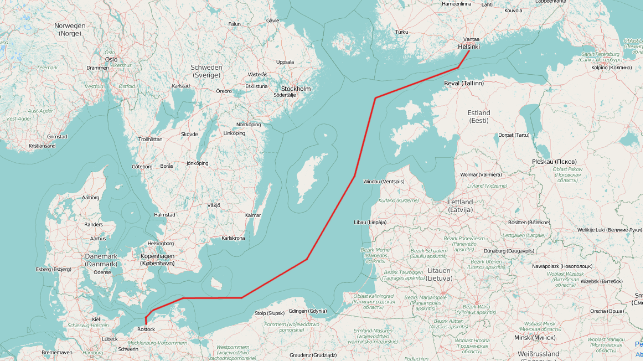Two Baltic Subsea Cables Likely Severed by "Outside Forces"

Two Baltic subsea cables connecting four different NATO nations have likely been severed, according to officials in Finland and Sweden.
The first fiber-optic line in question is the C-Lion1 cable, which runs about 750 miles from Helsinki, Finland to Rostock, Germany. According to Finland's state telecom company, Cinia, the line may have been cut by an "outside force." A cable ship is preparing to get under way to make repairs, but fixing the damage could take up to two weeks.
At about 0800 GMT on Sunday, a subsea fiber connection between Lithuania and the strategic island of Gotland, Sweden also went out of service, according to Swedish telco Telia. By the nature of the failure, the company believes that the cause was physical damage to the cable, a spokesperson told CNN.
Suspicion immediately turned to "intentional damage," and to Russia. "Our European security is not only under threat from Russia's war of aggression against Ukraine, but also from hybrid warfare by malicious actors," the Finnish and German foreign ministers said Monday in a joint statement. "Safeguarding our shared critical infrastructure is vital to our security and the resilience of our societies."

that matters most
Get the latest maritime news delivered to your inbox daily.
Subsea fiber optic infrastructure is an attractive target: it can be attacked covertly with deniable methods, it is hard to defend, and - if enough damage is done all at once - an interruption could have a major impact on Western economies.
In September, U.S. officials warned that Russia has increased its military activity near strategic subsea cables. The Russian military has been actively mapping NATO members' subsea infrastructure, maintains extensive capabilities for covert subsea interference, and has a motive for gray-zone retribution due to ongoing European support for Ukraine. It would not be a first: Russian intelligence agencies like the GRU are believed to be behind a series of recent sabotage attacks across Europe, likely connected to the EU's backing for Kyiv. "We've seen arson, sabotage and more," UK intelligence chief Ken McCallum said in October. "Dangerous actions, conducted with increasing recklessness."
